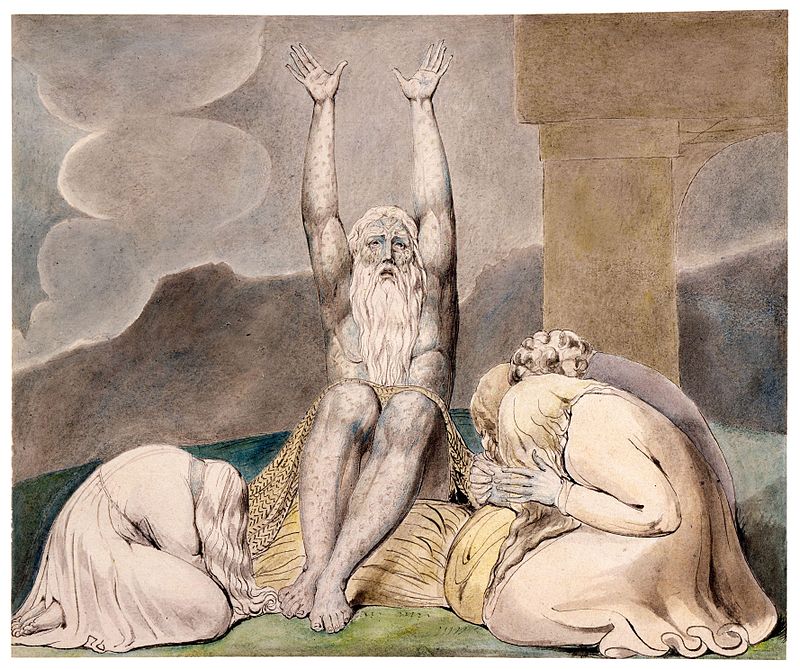
Catching Up And Adapting
Okay, I'm happy to report that I've caught up with the daily readings for the "Let's Read The Bible... Together" 2024 challenge.
However, on the technical side, it has not been plain sailing. I downloaded the app to my Chromebook and my Smartphone, and it seemed to work okay, but I ended up with two separate invitations to join the reading challenge. When I deleted one, all I got was an never-ending churn on the remaining one... So I've abandoned the app, but not the reading challenge!
I searched for a similar reading plan and quickly found that "chronological" means different things to different people. However, I found this one (for 2021) which looks like it is the order that we are following:
https://bibleplan.org/plans/chronological-bible-in-a-year/
On Job's Fears
I wondered whether Job's "fear" of God in the first chapter, and his "fear" in the third chapter were the same word in the Hebrew.
In the opening chapter we have these statements:
There was a man in the land of Uz, whose name was Job; and that man was perfect and upright, and one that feared God, and eschewed evil.
Job 1:1
And,
And the LORD said unto Satan, Hast thou considered my servant Job, that there is none like him in the earth, a perfect and an upright man, one that feareth God, and escheweth evil?
Job 1:8
Then, in chapter 3 we have,
For the thing which I greatly feared is come upon me, and that which I was afraid of is come unto me.
Job 3:25
To me, the quality of those "fears" seems quite different. So I checked the Biblehub Hebrew lexicon and it yielded this:
Job 1:1:
fearing
וִירֵ֥א (wî·rê)
Conjunctive waw | Adjective - masculine singular construct
Strong's 3373: Fearing, reverent
Job 1:8:
who fears
יְרֵ֥א (yə·rê)
Adjective - masculine singular construct
Strong's 3373: Fearing, reverent
This, then, is "fear" as in "reverence" towards God.
When I checked Job's "fear" of chapter three, I found this"
Job 3:25:
I feared
פָּ֭חַדְתִּי (pā·ḥaḏ·tî)
Verb - Qal - Perfect - first person common singular
Strong's 6342: To dread, be in dread or in awe
I suggest this "fear" in the context of the book of Job is the "dread" of disaster, and quite a different quality of fear to that of his God-fearing reverence.
Once again, it seems that I have stumbled upon a bit of a controversy, as there is a mountain of commentary on what exactly Job was fearing and when he was overtaken by dread.
However, what struck me as I read along to the superb narration by Christopher Gly, was how much Job was afflicted by peradventure and dread.
I googled the question of Job's fear and came across one blogger who had something interesting to say about it:
Job’s fear worked with Satan to bring calamity upon him,
https://shelemah.com/a-lesson-on-fear-from-the-book-of-job/
What, then, of that description of Job as a "perfect" man in the opening chapter?
Job 1:1:
was blameless
תָּ֧ם (tām)
Adjective - masculine singular
Strong's 8535: Complete, pious, gentle, dear
Of those alternatives, I prefer "pious" since Job is pious in his performance of propitiatory rights on behalf of his offspring, but my favourite adjective is that employed by the Roman Catholic translators in the Douay-Rheims Bible: "simple."
Of course, not "Simple Simon" simple, but rather simple in the sense of being without guile and therefore freely trusting in the observance of purification rites and burnt offererings of his tribe to keep everything good with God against any peradventure.
One is almost tempted to draw a comparison between Job's naive simplicity and the knowing side-bet that God initiates with Satan. The "bet" is based upon the ultimate soundness of Job's simplicity in comparison to the jaundiced worldly-wisdom that is uttered by Satan.
By the way, I discovered that we can listen to Christopher Glyn's narration of Job right on Biblehub for free:
https://biblehub.com/audio/glyn/job/3.htm
Cheers!
David Hurley
#InspiredFocus
Source
The cover image is of "Job's Despair," from the Butts set. Pen and black ink, gray wash, and watercolour, over traces of graphite, by William Blake, Public domain, via Wikimedia Commons